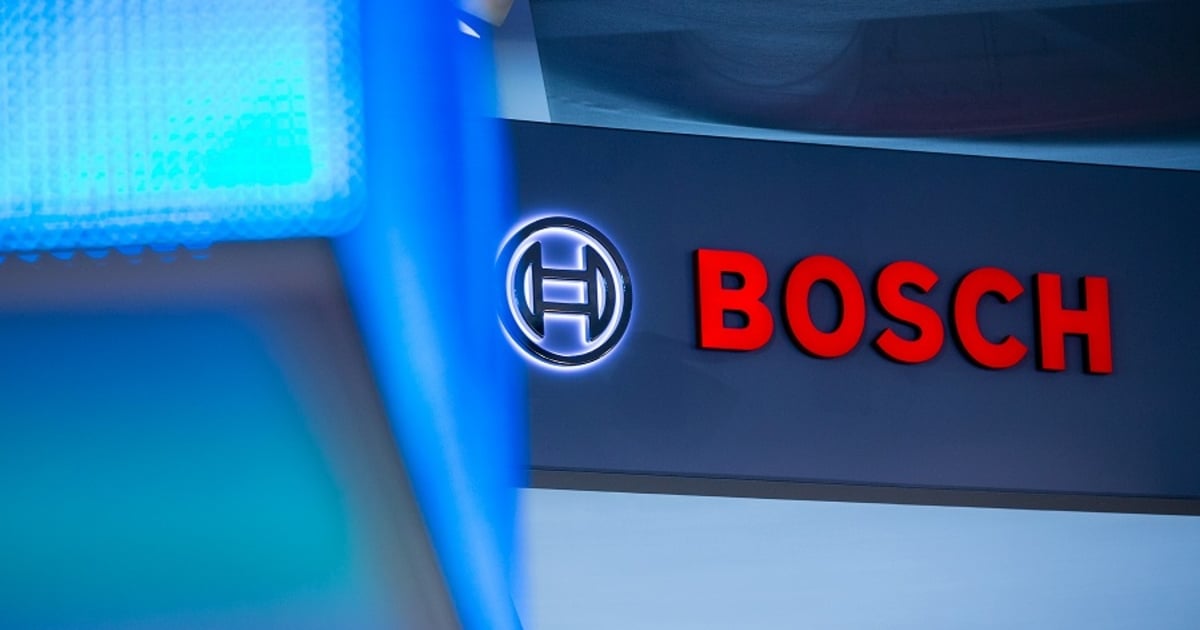
Operating profit at Robert Bosch increased by 16 percent in 2022, as the supplier’s Mobility Solutions division outperformed an auto market that was hurt by semiconductor shortages and the war in Ukraine.
Earnings before interest and taxes (EBIT) rose to 3.7 billion euros ($4.04 billion) from 3.2 billion euros in 2021. Profit margin was 4 percent.
Revenue increased 10 percent after adjustments for exchange-rate effects to 88.4 billion euros, Bosch said Friday.
Sales at Bosch’s Mobility Solutions business sector, its largest unit, rose by 17 percent to 56.2 billion euros, or 12 percent after adjusting for exchange rate effects, Bosch said.
The supplier did not release separate profit or margin figures for the unit, but Bosch said in a release that it “cannot be satisfied with its profitability” and that margins were weighed down by supply chain cost increases and investments “in the transformation of the company’s mobility business.”
Bosch’s margin was also 4 percent in 2021.
Bosch is ranked No. 1 on the Automotive News list of the top 100 global suppliers, with worldwide sales to automakers of $49.14 billion in 2021.
The Stuttgart, Germany-based company is not publicly listed. The Robert Bosch foundation holds 94 percent of share capital, with the remaining shares family- or company-owned.
The outlook for 2023 is mixed, with global economic output expected to grow by less than 2 percent, CFO Markus Forschner said. Europe would feel the effects of higher energy costs, but the Chinese economy is expected to recover as the country emerges from its “zero COVID” policy of strict lockdowns.
Forschner said that while Bosch was on target to meet its long-term goal of 7 percent margins, in the short term the company would feel the effects of higher costs up and down the value chain.
At the same time, he said, Bosch needed to invest heavily now to ensure growth in future technologies. He did not reveal specific targets for 2023, saying only that Bosch “aims to increase its sales and further improve its profitability.”
Among those investments are more than 500 million euros to develop components for hydrogen electrolysis, a technology that promises to speed adoption of so-called green hydrogen for use in transport and other sectors.
CEO Stefan Hartung said Bosch would invest an additional 3 billion euros in its semiconductor business. Bosch has recently opened a wafer fab to build automotive chips in Dresden, Germany.
Sales at Bosch’s industrial technology sector increased 14 percent (11 percent adjusted for exchange rate) to 6.9 billion euros; consumer goods was up 2 percent (3 percent adjusted) to 21.5 billion euros; and energy and building technology was up 15 percent (13 percent adjusted) to 7 billion euros.
Growth in Europe was dented by effects of the war in Ukraine, Forschner said, with sales increasing 8 percent (10 percent adjusted) to 44.8 billion euros; sales in the U.S. rose by 25 percent (11 percent adjusted) in to 14.3 billion euros; Asia Pacific sales were up 12 percent (8 percent adjusted) to 27.5 percent.
Reuters contributed to this report